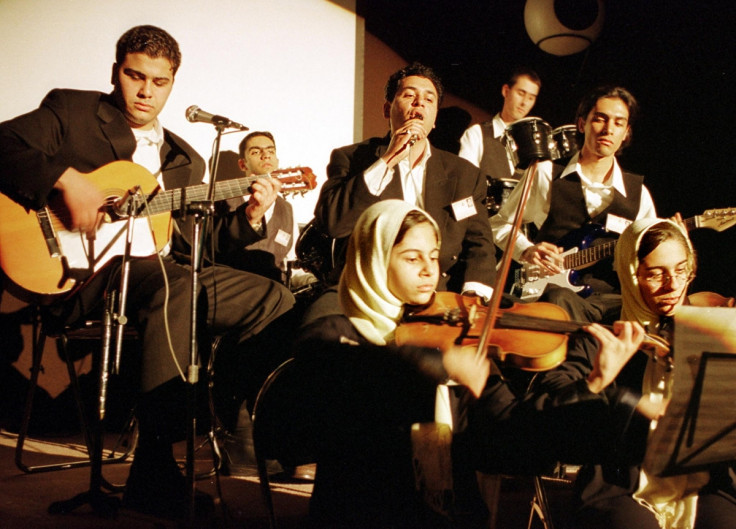Asked to ban female musicians, Tehran Symphony Orchestra cancels performance

The Tehran Symphony Orchestra cancelled a performance planned for the closing ceremony of an international wrestling event after authorities objected to the dress code of the female members. The orchestra's art director cancelled the performance rather than acquiesce to this form of gender discrimination.
Speaking to the Iranian Student News Agency, the orchestra's artistic director Ali Rahbari mentioned: "I said all of us will perform together or we will leave the hall. Some tried to resolve the problem but eventually they said the women cannot be allowed to perform, so I said we will not perform."
The authorities had pointed out that the female performers were not wearing appropriate hijab (head covering). Rahbari said the orchestra was supposed to perform the national anthem along with other patriotic pieces but were informed of the objection 15 minutes before the performance.
"The women musicians were going to perform the country's national anthem. Why shouldn't they? I have said many times that I was born in this country and I know very well where the red lines are. As long as I'm the director of this orchestra, I will not allow this kind of treatment," he added.
The performance was to conclude the Freestyle Wresting World Cup hosted by Iran on 29 November. Rasoul Khadem, the head of the Iran Wrestling Federation, in a letter to Culture and Islamic Guidance Minister Ali Jannati said the organisers had not protested against the orchestra and had in fact invited the group to perform at another event.
"This incident has left a negative impact on public opinion and among art lovers in the country," Khadem said.
Protests against female performers have become a common occurrence across Iran with numerous shows being cancelled for no clear reason. When the authorities are unable to clarify their reasons for cancelling a show, they often classify their actions as "security measures".
In January this year, Alim Qasimov and his daughter Ferghana, prominent singers from the Azerbaijan Republic, were scheduled to perform for three nights in Tehran. While the first two nights went without interruption, on the third night police officers prevented Ferghana from joining her farther on stage and asked Alim to perform solo.
Local newspaper Shahrvand quoted Alim as apologising to the disappointed audience saying: "I respect Iran's laws but nowhere in the world are women artists treated in such a way." Days before the Qasimov incident, musician Majid Derakhshani was not allowed to leave the country. He had been previously interrogated about his formation of the Mah Banoo Ensemble, an all-female music group.
The International Campaign for Human Rights in Iran has found a rise in concert cancellations since Hassan Rouhani became Iran's president in 2013, especially those featuring female performers.
© Copyright IBTimes 2025. All rights reserved.






















